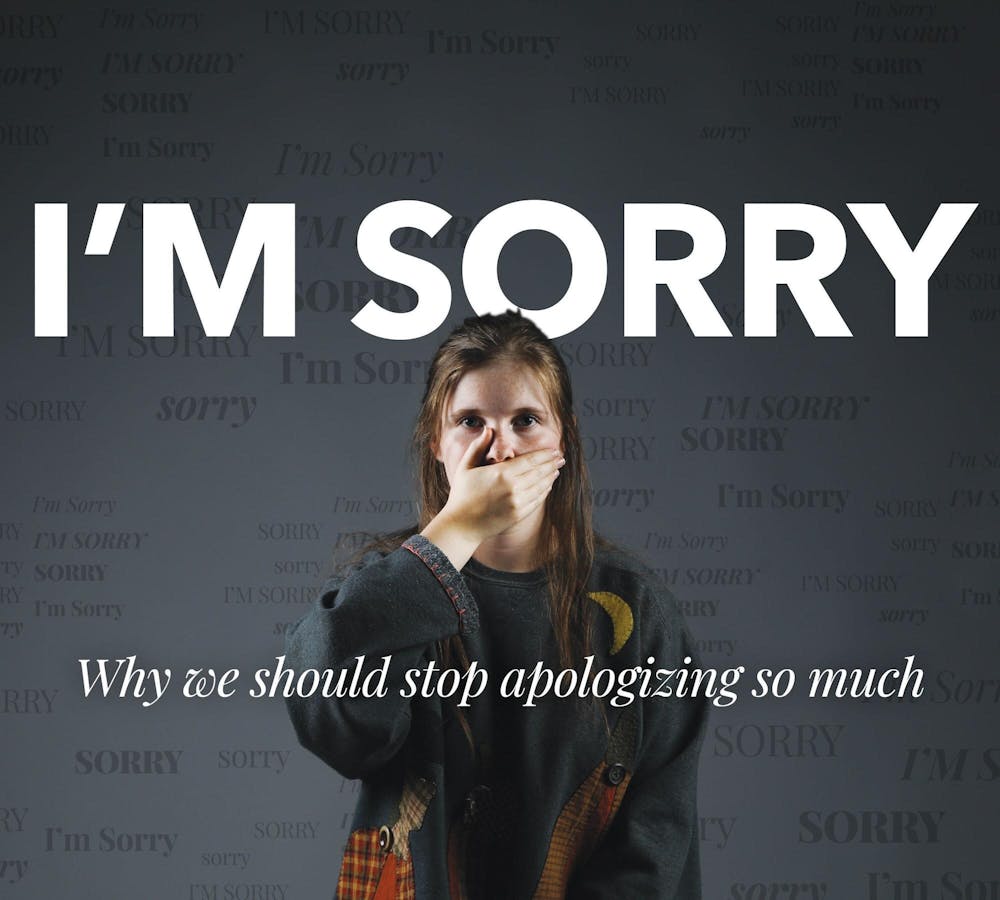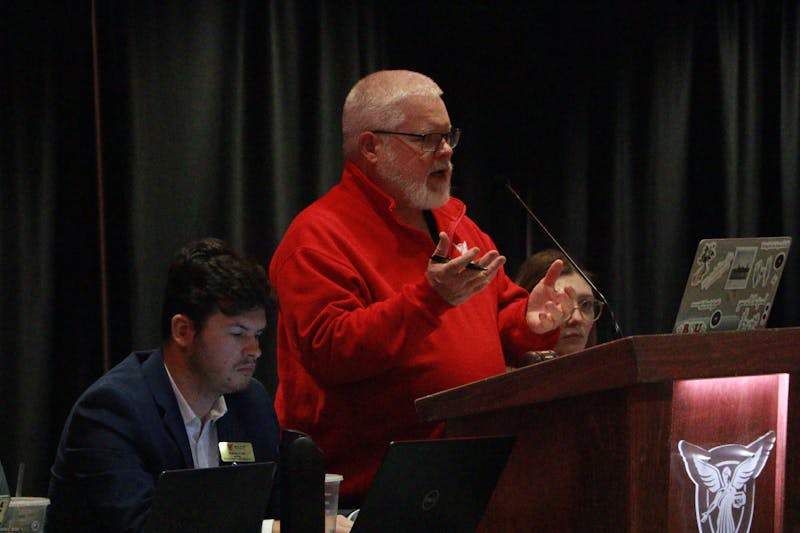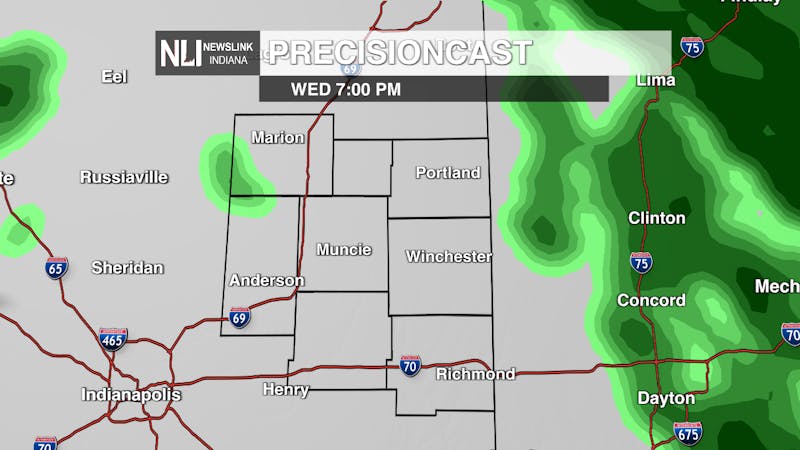Elaine Ulsh is a second-year computer science and physics major and writes “The Occasional Observer” for the Daily News. Her views do not necessarily reflect those of the newspaper.
“I’m sorry.”
These are the words that I have been saying my whole life.
But why?
Am I scared of what people will say if I am completely confident in myself? Am I scared that I will come off too strong? Am I scared that it will make me seem like an irredeemable meanie head? Or am I just used to it?
I have apologized for many things. Things I had absolutely nothing to do with. And if I had a nickel for every time? I’d absolutely be rich.
There is a tendency to apologize for things that we have no control over. And I want it to end, or at least for the narrative to change. Not just for my sake, but for the sake of others.
I often find that I am expected to — and do — apologize for things that I shouldn’t as a woman.
My parents were very “girlboss” my entire childhood, which leads me to believe that it didn’t have anything to do with my upbringing, but rather something people seem to just expect from me.
Trust me when I say I feel the pressure.
If I’m late to something, I immediately apologize: “I’m so sorry that I’m late, blah blah blah came up…”
If I take charge of a project, which I tend to do, I end up apologizing: “Sorry, if I’m making this difficult…”
In comparison, I have noticed that a male counterpart could be late, not apologize and simply not care. Not only does that seem rude, but also like a double standard — a bias. And I especially can’t remember ever hearing a guy apologize for being bossy. Of course, there are exceptions to every rule. Guys can be over-apologetic — it just doesn’t seem to be as common in guys as it is in girls.
According to a study by the Child Mind Institute, it’s common for girls to use “qualifying language” to avoid being viewed in a negative light. Qualifying language includes over-apologizing, starting sentences with “sorry” or hedging.
To clarify, hedging means to limit or qualify something by conditions or expectations. In this case, that would mean saying “I might be wrong, but…”
In essence, the study found that girls apologize too much, being they are conditioned to pay attention to how their behavior affects others.
Saying “sorry” is a very vulnerable thing. We all feel it. But I’m at a point where I say it without realizing it.
On the flip side, when I catch other people apologizing when it’s really not necessary, I call them out on it. I had someone say “I’m sorry that your head hurts” the other day. They didn’t cause my headache (that I know of), so why would they be sorry about it?
I said “you don’t need to be sorry about that, you didn’t do it” and I meant it. But if it was the other way around, I would have apologized in a second and meant it too.
Saying “sorry” has major impacts. Not just to you, but to those around you as well.
Many people feel that over-apologizing lessens the impact of future apologies as you can get used to something if it is said too much. It can also make people lose respect for you and lower your own self-esteem according to psychotherapist Beverly Engel’s book "The Power of Apology."
So, if it has all these bad characteristics, what’s the point of over-apologizing?
I notice this behavior in others when they are trying to be polite. “I’m sorry” just feels like a nice thing to say — a polite thing.
In this day and age, people — specifically women — are expected to be on their best behavior every second of every day. This is not inherently bad. People should be on their best behavior. In fact, many people are raised to show respect through politeness. However, it is how we do so that can cause issues.
According to PsychCentral, “Apologizing excessively can be the result of a genuine desire to demonstrate respect.” But if there’s no reason to apologize, don’t do it. With all the drawbacks, all that apologizing is going to do is make both you and other people feel worse about yourself.
There are other ways to be polite than simply apologizing. The PsychCentral article also states that one way in which you can stop your over-apologizing habit is to pay attention to when you’re apologizing and examine if there’s a better way to respond to it. Many times, there will be.
In tackling my own over-apologizing habit, I have found very creative ways to respond to a situation without undermining myself. Getting rid of the habit has genuinely changed the way I communicate with others.
Instead of saying “I’m sorry, can I ask…?”, I just ask the question. Instead of saying “Sorry if I’m being a lot with all of this,” I have said “I know the work is a lot.” That way, I’m not undercutting myself with qualifying language or over-apologizing when there’s really no need.
I do want to clarify that this issue is not girl-exclusive. Anyone of any gender could struggle with over-apologizing. To say that this only happens to one group of people is simply ignorant. I have known many people who over-apologize, and it was not gender-specific.
A study by the University of Waterloo tested whether men do in fact apologize less frequently than women do. It found that when asked to track the number of offenses that could warrant an apology, women recorded 267 offenses with 217 apologies, while men only recorded 196 offenses with 158 apologies.
This further backs up the fact that women are more alert to how their behavior affects others. The study includes factors such as men not noticing offenses that should be apologized for.
The concept of over-apologizing is not a gender-associated thing. Many people apologize unnecessarily for factors that have nothing to do with gender, such as childhood trauma, mental illness and much more.
Apologizing is not a bad thing. I want to be clear on that. However, there are times when we apologize where it is unnecessary.
I think there needs to be a push for us as a society to work on ways to be polite other than undermining ourselves by over-apologizing. And in doing so, perhaps we can gain a level of self-assurance.
If we aren’t as focused on our own lives, maybe, just maybe, we can pour some of our attention into improving the many flaws of our society.
Contact Elaine Ulsh with comments at elaine.ulsh@bsu.edu.





The Daily News welcomes thoughtful discussion on all of our stories, but please keep comments civil and on-topic. Read our full guidelines here.